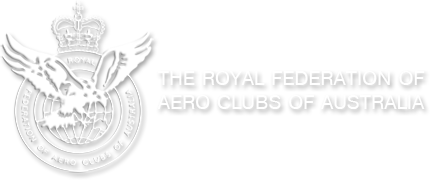The R.F.A.C.A objectives are:
- To seek to be the pre-eminent industry representative organisation for the Australian Flying Training Industry
- To represent our members at all levels of government and industry
- To promote general aviation to the public of Australia as a safe and viable means of transport and as a satisfying sporting, recreational and leisure activity
- To promote flying training general aviation to Australians as a legitimate and rewarding form of education
RFACA POLICIES ON ISSUES
Whilst objectives are very important so are the policies of the RFACA has on issues in the Industry. The Technical Advisory Committee is our source of policy making. Below are our policies on some very pertinent issues:
The Federation is continually working for you, our members. For any further information or suggestions on these policies please do not hesitate to contact Charles Thompson (Chairman of TASC) via the contact page.
REGULATORY REFORM
Regulatory Reform Programme:
In the past, the RFACA participated in the various reviews associated with the regulatory review program.
Currently, the RFACA is an invited member of the Technical Working Group (TWG) for CASR Parts 61, 141 and 142 which reports to the Aviation Safety Advisory Panel (ASAP). Our membership of this panel provides the opportunity to put forward issues raised by member organisations relating to the operational impact of these Parts as well as suggestions for improvements in effectiveness, efficiency and practical application.
FLYING TRAINING
The RFACA is committed to the provision of high quality flying training and to the standardisation of flying training.
Recreation Pilot Licence:
The RFACA, through the TWG, has raised issues relating to the recognition of RAAus Pilot Certificates and the transition requirements provided in Part 61 for the holders of Certificates.
These discussions are ongoing through the TWG and have the support of other members of this group.
Flight Examiners:
The RFACA has raised issues relating to the process, time and costs associated with gaining a Flight Examiner Rating, particularly for the conduct of RPL, PPL and NVFR flight tests.
Private Pilot Licence Exams:
The RFACA has put a proposal to CASA for an alternative pathway to the single theory examination for the Private Pilot Licence. The following proposal has received in principle agreement from CASA and have been advised that it is awaiting resource availability.
Concerns were raised by RFACA members, and others, in relation to
- the effectiveness and efficiency of a single examination covering all (nine) required PPL units specified in the Part 61 MOS;
- the depth of knowledge that can be assessed in a single examination across all the required units;
- the challenge of delivering effective and productive training to casual/part-time students across all units over extended periods of time; and
- the re-examination of material covered in the RPLA exam.
The RFACA propose:
- provide applicants with the option of sitting three individual examinations covering the required PPL theory units (retain the single examination as an option);
- the three examinations be split as follows:
- Aircraft knowledge
- Environment
- Operations
- a pass in all three examinations constitutes a pass in the PPL theory examination requirement.
